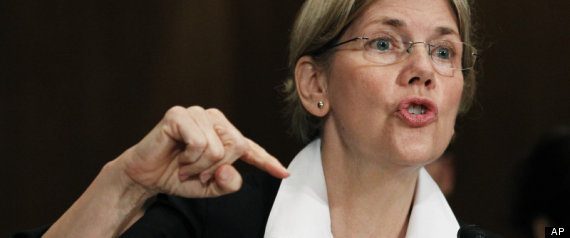 That "little government agency," as it was described by its staunchest defender, Elizabeth Warren, could end up overseeing tens of thousands of firms when all is said and done.
That "little government agency," as it was described by its staunchest defender, Elizabeth Warren, could end up overseeing tens of thousands of firms when all is said and done. The still-fledgling CFPB has laid out a list of six different types of companies that could soon fall under its wing, including debt relief and check cashing companies, that until now have mostly been free from the eyes of federal regulators, according to the Wall Street Journal.
The consumer protection bureau, first conceived of by Harvard Law Professor Elizabeth Warren and created under last summer's financial reform, aims to protect consumers from abuses by financial institutions.
Thursday’s announcement was the beginning of what could still be the year-long process of defining which consumer finance companies will be regulated by the CFPB.
The WSJ lays out the areas of focus:
The six areas outlined comprise debt collection; consumer reporting; consumer credit and related activities; money transmitting, check cashing and related activities; prepaid cards; and debt-relief services. The bureau also identified automobile loans and personal loans as large sectors that could fall under its supervision.That would leave the bureau with its work cut out, as the WSJ quotes a senior agency official as saying that the bureau “potentially could be responsible for tens of thousands or even 100,000 firms.” In late May, Congressman Patrick McHenry (R-N.C.) criticized CFPB as having "virtually unchecked" authority as currently conceived, part of a larger Republican attack against the agency.
Under the Dodd-Frank financial regulatory law, the consumer bureau is required by July 21, 2012 to define which types of nonbank companies are “larger participants” that would be overseen by the bureau.
According to The New York Times:
Banks, credit unions and savings and loan companies have long been subject to regular examinations by federal regulators to ensure that they comply with consumer financial laws. The Dodd-Frank law expanded federal regulation to a host of financial service companies that previously had not been regulated but that some legislators felt had contributed to the instability that worsened the 2008 financial crisis.The consumer bureau, however, is still facing an uphill battle over the appointment of a permanent director. The bureau is supposed to begin operations next month, but it cannot begin regulating nonbank financial services companies until a director is in place.
As the Journal notes, Republicans have not budged from their firm stance of blocking any nomination until structural changes are made to the agency. President Obama has not yet appointed a director of the CFPB. Elizabeth Warren, a law professor and special advisor to Obama, has been working to get the agency off the ground.
Full Article
Source: Huffington
No comments:
Post a Comment